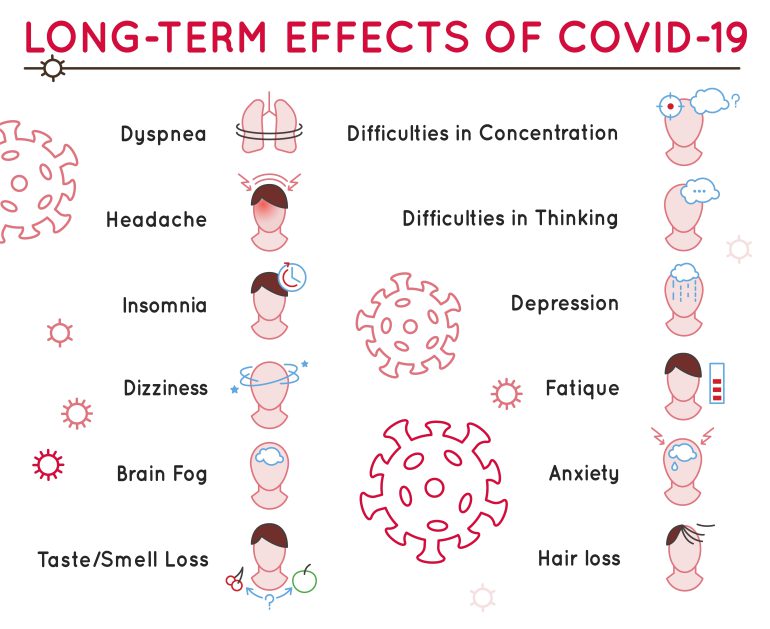More than two years after the world went into lockdown to limit the spread of the virus that causes Covid-19, doctors are still learning about this constantly changing disease. While the disease causes few problems for many patients, particularly younger individuals, others end up with extensive physical damage even if they survive the initial infection. Worldwide there have been almost 582 million Covid-19 cases, a number that includes individuals who experienced mild symptoms as well as those who died after contracting the virus. Recently evidence has emerged suggesting that many who contract Covid-19 and survive actually end up suffering for long periods of time, with many never fully recovering. Doctors and patients refer to this as Long Covid. In the Netherlands, approximately one in eight people who contract Covid-19 end up with long-term health problems related to the disease, according to research results recently released by the University Medical Center Groningen (UMCG).
UMCG recently completed a study that looked at 13,000 people who live in the Northern Netherlands to determine how many people continued to suffer from medical issues months after recovering from Covid-19. According to their results, one in eight individuals – 12.7% of the study’s participants – suffered from Covid-19-related physical issues for three months or longer after being infected with the disease. The most common complaints included shortness of breath, loss of smell and taste, chest pain, difficulty breathing and muscle aches.
The study, published on 5 August in The Lancet, relied on data gathered as part of the long-term longitudinal Lifelines study, designed to document the health of the population in the Northern Netherlands in which UMCG has participated since 2006. Participants regularly answer questions regarding muscle pain, difficulty breathing and other physical ailments as part of the ongoing study. Because the university began gathering health data on the study’s subjects well before the onset of the Covid-19 pandemic, researchers were able to use the information to specifically pinpoint changes related to Covid-19 infections. According to Judith Rosmalen, the research team was “able to very precisely determine if people really developed new complaints or if the complaints were present far earlier”.
Individuals who never contracted Covid-19 also participated in the study. These subjects increased the precision of the results by acting as a control group, allowing researchers insight into other reasons individuals could end up with Covid-19-like symptoms. Common causes included respiratory issues related to changes in seasons and the development of new illnesses linked to pandemic-related lifestyle changes.
Next on Rosmalen’s agenda is understanding why people develop Long Covid and determining how best to treat them, as there’s currently no science-based information about how to best manage Long Covid. “I’m recovering slowly,” says Jan van Hoek, a Long Covid patient, “but I don’t have any idea when you stop improving. And there’s no one who can tell me where this all goes, what I can expect. And that’s difficult.”
Thanks to the Lifelines project, an answer might be in sight. Participants in the study provided regular blood samples, which researchers can now use to evaluate levels of organ damage and long-term inflammation experienced by Long Covid sufferers. And the researchers intend to ask Long Covid patients enrolled in the study to participate in further testing. “We’d like to measure thyroid function, do exercise tests, evaluate autonomous nervous system function and run several other tests on a subsection of the Long Covid patients participating in the Lifelines study,” says Rosmalen.
There are also plans in the works to study the lung function of Long Covid patients. “Thanks to Lifelines, we have lung function tests from the past few years,” says Rosmalen. “We can compare the tests of people with Long Covid with tests from before they became sick. Thus, we can evaluate whether Covid has impaired lung function in all Covid patients or just in those who are suffering from Long Covid.” Rosmalen ultimately hopes to improve the lives of Long Covid sufferers with the research she and her team are doing. “We hope that care for people who have Long Covid becomes much better,” she says.
Written by Lorre Luther
